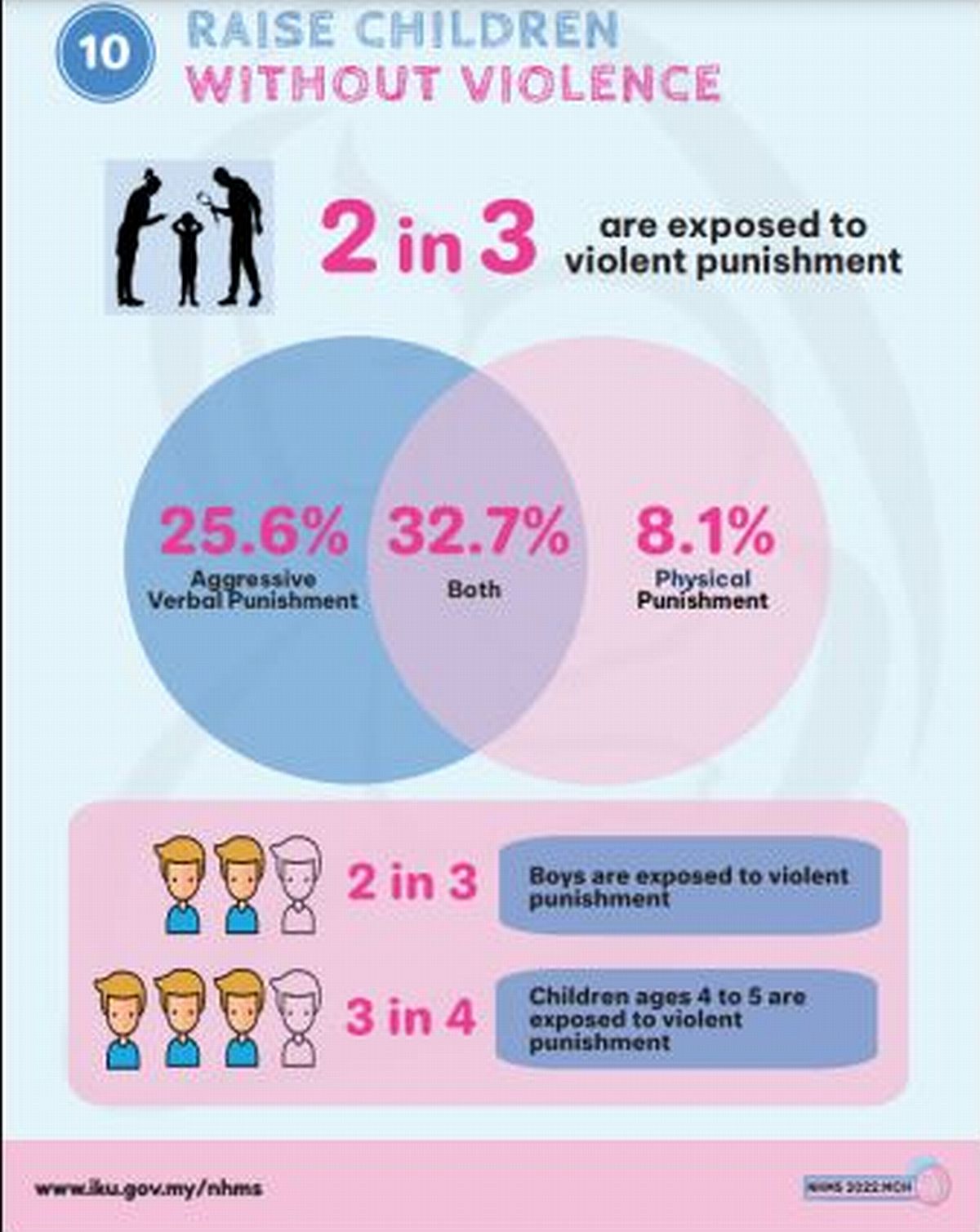KUALA LUMPUR, June 21 – The National Health and Morbidity Survey (NHMS 2022) on Maternal and Child Health revealed a disturbing pattern of violence against children from a very young age, with two in three children in Malaysia exposed to violent punishment.
Some 17,176 children between the ages of 0 and 5 were surveyed in the study conducted by the Institute of Public Health (IKU) under the Ministry of Health.
The NHMS 2022 survey also found that 32.7 per cent of children experienced both aggressive verbal punishment and physical punishment, 25.6 per cent suffered only aggressive verbal punishment, and 8.1 per cent suffered only physical punishment.
Two in three boys are exposed to violent punishment, while three in four children aged 4 to 5 are exposed to violent punishment.
According to the United Nations Children’s Fund (UNICEF), violent discipline at home is the most common form of violence experienced by children.
Educating children about self-control and acceptable behaviour is an indispensable aspect of child rearing across all cultures. However, many caregivers resort to psychologically and physically violent means to punish undesirable behaviours and encourage desired ones.
Regardless of the type, all manner of violence is considered a violation of children’s rights. UNICEF maintained that while children of all ages are at risk, experiencing violent discipline at a young age can be particularly harmful, given the increased potential for physical injuries, as well as children’s inability to understand the motivation behind the act or to adopt coping strategies to alleviate their distress.
A study from China published by Elsevier in 2019 found that parents who endorse harsh parenting tactics often attempt to find excuses for their harmful acts toward their offspring.
According to the study, these parents often claim that their intention is to help children correct mistakes and improve themselves.
However, harsh parenting may teach children to learn that it is acceptable to inflict harm on others for seemingly reasonable excuses, resulting in a likelihood of child moral disengagement.
Therefore, harsh parenting is identified as a familial risk factor for child aggression and can harm the healthy development of a child’s morality.












